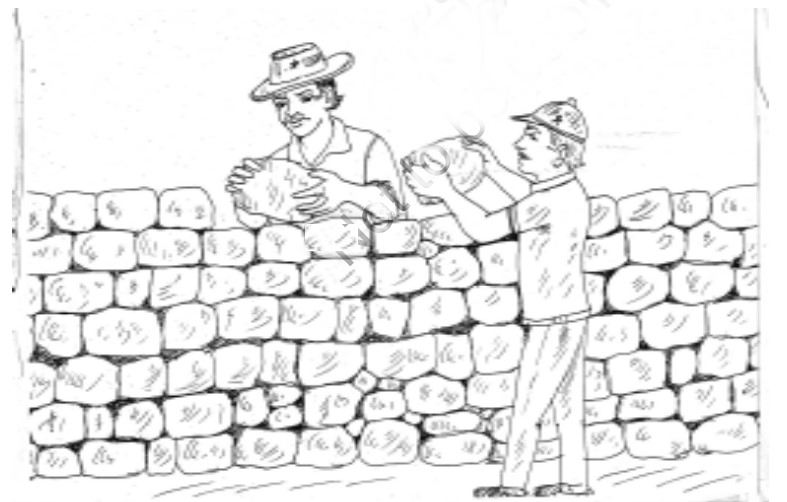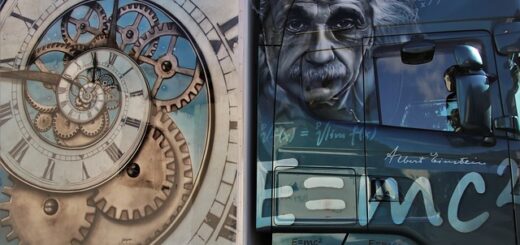Mending Wall by Robert Frost – Summary

“Mending Wall” by Robert Frost is a poem that explores the idea of boundaries and friendship. It tells the story of two neighbors who come together every year to repair a wall that separates their properties. Through simple language and vivid imagery, the poem teaches us important lessons about cooperation and the value of human connections.
Something there is that doesn’t love a wall,
That sends the frozen ground swell under it,
And spills the upper boulders in the sun;
And makes gaps even two can pass abreast.
Explanation:In this stanza, the speaker begins by saying that there is something in nature that doesn’t like walls. This something causes the ground to swell from freezing and pushes the big rocks on top of the wall down, exposing them to the sunlight. It creates gaps in the wall that are wide enough for two people to walk side by side.
The work of hunters is another thing: 5
I have come after them and made repair
Where they have left not one stone on a stone,
But they would have the rabbit out of hiding,
To please the yelping dogs. The gaps I mean,
Explanation: In this stanza, the speaker talks about the work of hunters and how it relates to the wall. The speaker mentions that they have come after the hunters and fixed the wall where they have knocked down every stone. The hunters want to chase the rabbit out of its hiding place to satisfy their dogs that are barking. The gaps that the speaker is referring to are the openings in the wall that need to be repaired.
No one has seen them made or heard them made,
But at spring mending-time we find them there.
I let my neighbour know beyond the hill;
And on a day we meet to walk the line
And set the wall between us once again.
We keep the wall between us as we go.
Explanation: In this stanza, the speaker talks about the time when they and their neighbor come together to mend the wall during springtime. No one has seen how the walls are made or heard the sound of their construction. But every spring, the speaker informs their neighbor, who is on the other side of the hill, about the wall-mending activity. They both agree to meet and walk along the boundary line to fix the wall. Their aim is to rebuild the wall that separates them, and as they proceed, they maintain the wall between them.
To each the boulders that have fallen to each.
And some are loaves and some so nearly balls
We have to use a spell to make them balance:
“Stay where you are until our backs are turned!”
We wear our fingers rough with handling them.
Oh, just another kind of outdoor game,
One on a side. It comes to little more:
There where it is we do not need the wall:
Explanation: In this stanza, the speaker talks about how they and their neighbor each take care of the fallen boulders on their respective sides of the wall. Some of the boulders are shaped like loaves of bread, and others are almost round like balls. To make them balance properly, they use a kind of magic spell, telling the stones to stay in place until they turn away. Handling the stones roughens their fingers. The speaker compares the activity to an outdoor game, where each person is on their own side. However, in the end, the speaker realizes that the wall is not really necessary in that particular spot.
He is all pine and I am apple orchard.
My apple trees will never get across
And eat the cones under his pines, I tell him.
He only says, “Good fences make good neighbours.”
Explanation: In this stanza, the speaker describes the differences between themselves and their neighbor. The neighbor is described as being like a pine tree, while the speaker is like an apple orchard. The speaker explains to the neighbor that their apple trees will never cross over to the neighbor’s side and eat the pine cones under his pine trees. The neighbor’s response to this is simply, “Good fences make good neighbors.” This suggests that the neighbor believes in the importance of having clear boundaries and maintaining a separation between their properties.
Spring is the mischief in me, and I wonder
If I could put a notion in his head:
“Why do they make good neighbours? Isn’t it
Where there are cows? But here there are no cows.
In this stanza, the speaker reflects on their mischievous nature during springtime and wonders if they could influence their neighbor’s perspective. They contemplate the idea of questioning the purpose of maintaining a wall and why it is considered important for being good neighbors. The speaker ponders if the presence of cows is the reason for having a wall, but in their specific situation, there are no cows around.
Before I built a wall I’d ask to know
What I was walling in or walling out,
And to whom I was like to give offence.
Something there is that doesn’t love a wall,
In this stanza, the speaker reflects on the purpose and consequences of building walls. The speaker expresses the idea that before constructing a wall, they would want to understand what they are enclosing or excluding with it. They also consider who might be offended or affected by the presence of the wall. The stanza concludes with the line “Something there is that doesn’t love a wall,” suggesting that there is an underlying force or element that resists and questions the need for barriers and divisions.
That wants it down.” I could say “Elves” to him,
But it’s not elves exactly, and I’d rather
He said it for himself. I see him there
Bringing a stone grasped firmly by the top
In each hand, like an old-stone savage armed.
In this stanza, the speaker considers the idea of suggesting to their neighbor that mischievous elves are the ones responsible for knocking the wall down. However, the speaker decides against it and would prefer the neighbor to come to that conclusion on his own. The speaker observes the neighbor as he brings stones to repair the wall, gripping them tightly at the top, resembling an ancient and fierce warrior.
He moves in darkness as it seems to me,
Not of woods only and the shade of trees.
He will not go behind his father’s saying,
And he likes having thought of it so well
He says again, “Good fences make good neighbours.”
In this stanza, the speaker observes the neighbor’s behavior and mindset. The neighbor moves in darkness, which the speaker interprets as not just physical darkness but also a metaphorical darkness of ignorance or conformity. The neighbor refuses to question his father’s belief and continues to adhere to the idea that “Good fences make good neighbors.” The neighbor seems content with this thought and confidently repeats it.
For us, “Mending Wall” teaches us the value of friendship and cooperation. It shows that even though we may have different opinions, we can still work together and find common ground. It encourages us to be open-minded and understanding, even when we encounter differences. It reminds us that building and maintaining relationships takes effort and that it’s important to bridge the gaps between us.














